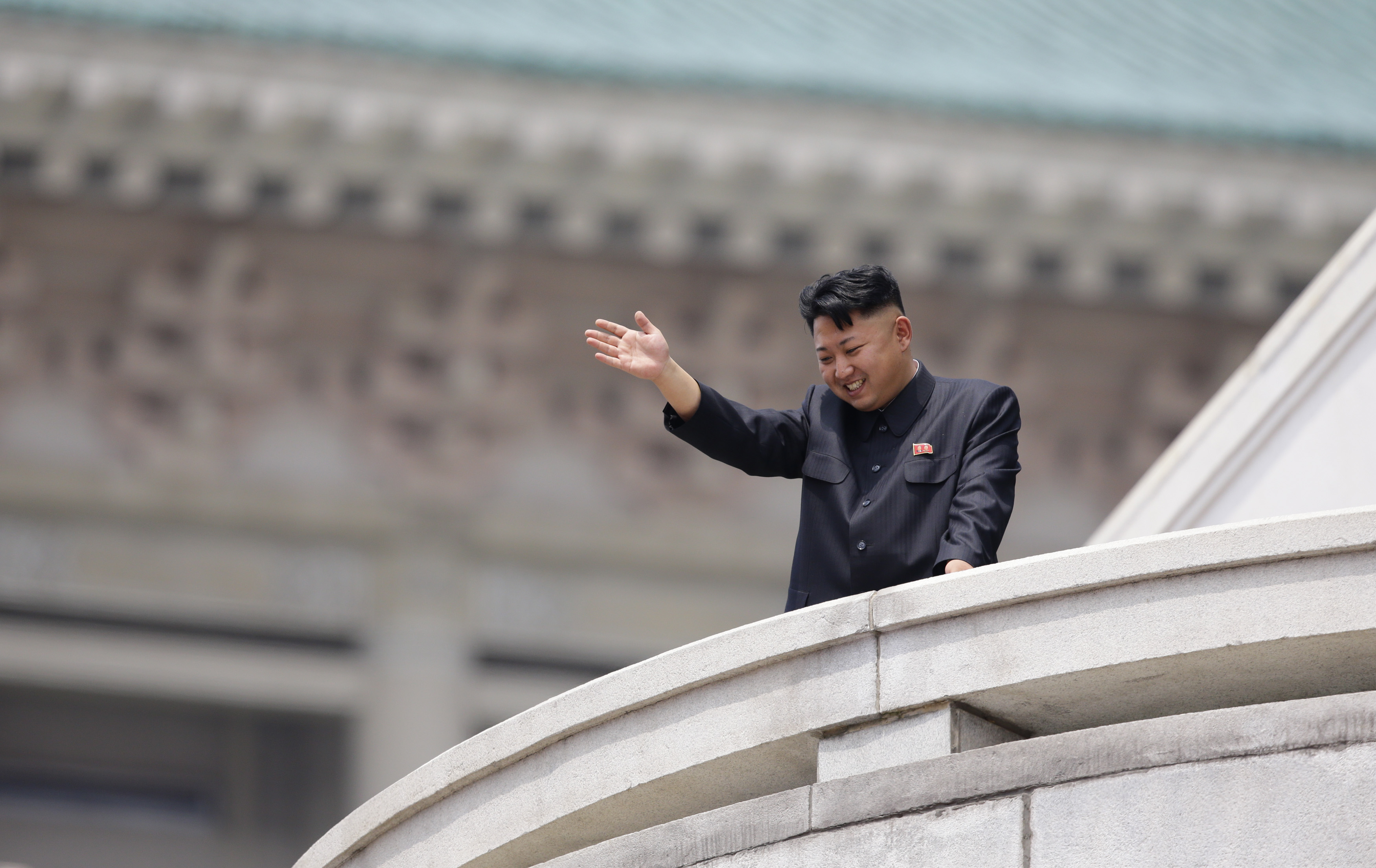China has a Kim Jong Un problem
China knows how to stop the Hermit Kingdom. It just doesn't have the stomach for it.

A free daily email with the biggest news stories of the day – and the best features from TheWeek.com
You are now subscribed
Your newsletter sign-up was successful
The West's condemnation, skepticism, and calls for sanctions have their place in the reactions to North Korea's purported test of a hydrogen bomb, but such reactions haven't done much to stop the rogue state before. And they're unlikely to do much in the future. Any defanging of the Hermit Kingdom is going to have to come from China.
Despite joining the United States in supporting a UN resolution to condemn last week's test, China has a deep economic relationship with North Korea that undermines Western sanctions and props up Kim Jong Un's totalitarian government. By far the top trading partner with the North Korean regime, China has the power to exert considerable economic pressure if it chooses. The Soviet Union used to be another major benefactor, but its collapse left China as North Korea's main ally and source of aid.
And that's North Korea's weak spot.
The Week
Escape your echo chamber. Get the facts behind the news, plus analysis from multiple perspectives.

Sign up for The Week's Free Newsletters
From our morning news briefing to a weekly Good News Newsletter, get the best of The Week delivered directly to your inbox.
From our morning news briefing to a weekly Good News Newsletter, get the best of The Week delivered directly to your inbox.
If China truly wanted to bring North Korea to heel, it could curtail its exports of oil which are vital to North Korea's economy and armed forces. It could stop the inflow of investment capital and hold back exports of industrial machinery. On the other side of the trade scale, China's considerable imports from North Korea of items like coal could be temporarily banned as a bargaining chip. In short, reining in North Korea would require China to stop running its economic and diplomatic approaches to North Korea divergently.
Whether China decides to bring the trade hammer down is another matter.
The problem is that China is wary of backing sanctions or withdrawing enough economic support to risk actually crippling the North Korean nation.
In the past Chinese foreign policy consensus has been that they are better off allowing the status quo in North Korea to continue, bizarre and unstable as it is. Beginning at the top with President Xi Jinping, they've been reluctant to go further than standard calls for stability and token condemnation, having been a linchpin of North Korea's existence before and since its founding after the Second World War.
A free daily email with the biggest news stories of the day – and the best features from TheWeek.com
In recent history, China has tried a carrot, not stick, approach to North Korea's transgressions, fostering improved trade ties even when diplomatic relations have soured. Indeed China, which once had its own internationally-isolated economy, replete with collective farms and mass starvation, has already tried to convince North Korea to institute limited market freedoms. Beijing did succeed in getting North Korea to welcome some foreign investment and develop its border trade area with China, but overall, North Korea's immensely corrupt leadership remains hostile to market reforms that could limit its ability to keep people dependent.
Strategically, the North Korean regime knows that China, deep down, backs it. A failed state would mean millions of refugees flooding across the Chinese border and, perhaps, North Korea's reunification with the South. The latter is a nightmare scenario for China because it could give the United States military — which already has a formidable presence in South Korea — a toehold on its border.
North Korea is counting on these problems. As Kim Jong Un looks to shore up his leadership status ahead of the upcoming Seventh Party Congress in May, he might be using this thermonuclear test, and the diplomatic fallout it's engendered, to prove himself to the extremists of his party. Kim Jong Un's erratic provocations have shown a marked ability to keep the world guessing. If China is on tenterhooks and wary to make a strong move in any direction, so much the better from North Korea's perspective: It just demonstrates the extent of Kim Jong Un's uniquely disruptive power.
Paul Brian is a freelance journalist whose interests include politics, religion, and world news. His work has appeared at BBC, The Federalist, Foreign Policy, and Reuters.